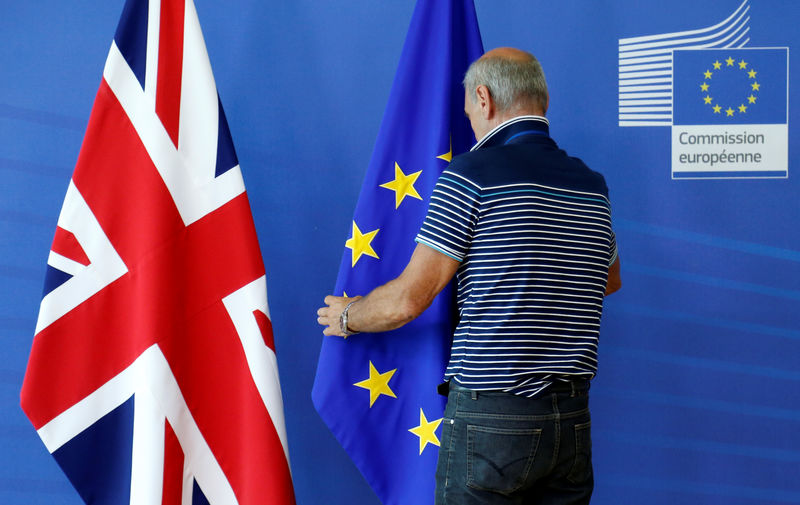By Costas Pitas
LONDON (Reuters) - Prime Minister Theresa May warned lawmakers on Saturday that Britain could be faced with a Brexit "cliff edge" if they fail to back her EU repeal bill, as reports suggest momentum is growing within the ruling Conservative party to unseat her.
On Thursday, British lawmakers will hold their first full parliamentary debate on legislation dubbed the Great Repeal Bill, which will sever the country's ties with the European Union.
May failed to win a clear mandate at a snap June 7 election and only has a slim majority in parliament thanks to an agreement with a smaller party. She remains vulnerable if her pro-European lawmakers team up with other parties to vote down legislation or support amendments.
The main opposition Labour Party is planning to table several changes to the repeal bill designed to keep Britain in the single market and customs union during a Brexit transition period after 2019, according to The Times.
On Saturday, May's deputy warned Conservative lawmakers from doing anything that would increase Labour's chances of returning to power, while May said the bill was the best way to ensure Britain's successful exit from the European Union.
"The Repeal Bill ... (is) the single most important step we can take to prevent a cliff-edge for people and businesses, because it transfers laws and provides legal continuity," she said in comments provided by her office.
"We ... welcome the contributions of MPs from across the House. But for us to grasp the great prize ahead of us, that contribution must fit with our shared aim: to help Britain make a success of Brexit."
But in a move that would irk many Eurosceptics, May is preparing to pay a Brexit divorce bill of up to 50 billion pounds ($65 billion) to the EU, The Sunday Times reported, citing an unnamed source. A spokeswoman at May's office told Reuters the report "is simply not true."
Earlier this week, May tried to draw a line under leadership speculation by saying she wanted to continue as Britain's leader beyond the next parliamentary election, not due until 2022, dismissing expectations she would quit as early as 2019.
But the Sunday Times reported that her announcement prompted "two or three more" Conservative lawmakers to sign up to a letter calling on her to quit, bringing the total to about 25. At least 48 are needed to trigger a leadership contest. A spokeswoman at May's office declined to comment on the report.
The Observer newspaper cited unnamed parliamentarians, including former ministers, as saying there was growing anger among pro-European Conservatives as they are told that softening the repeal bill with be seen as backing Labour, making a leadership challenge against May more likely this autumn.

But May is trying to grow support by winning over younger people who backed Labour in the election with plans to reform tuition fees and provide cheap homes to key public sector workers, the Sunday Times said.